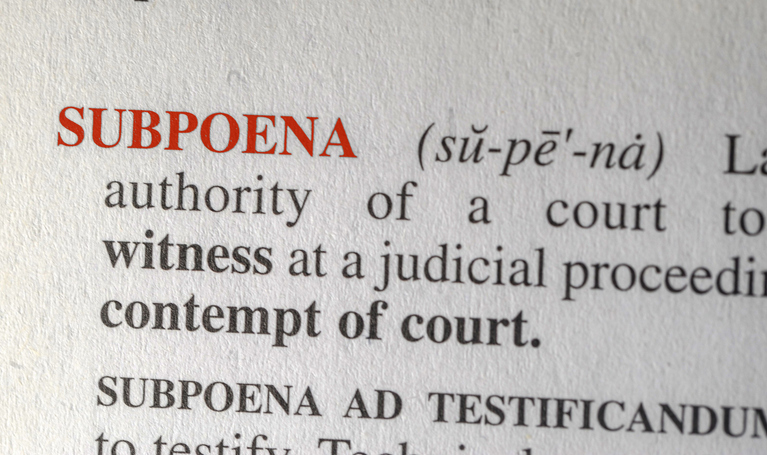Share
Share
White Collar Corner
The federal white collar lawyers at Evergreen Attorneys are committed to providing the highest level of federal criminal defense to our clients across the country. As part of our dedication to being the top white collar crime attorneys in Colorado and nationwide, we publish a regularly occurring series known as the White Collar Corner.
In this bi-weekly (monthly?) series of blog posts, the lawyers at Evergreen Attorneys will break down new developments in federal white collar crime law, BOP news, and other items of interest for federal criminal law practitioners. We may cover recent case law developments, changes in the federal prison system, or simply other substantive issues that need to make it out of the lawyer group chat and out to the general public.
If you or someone you know needs help with the federal criminal justice system, do not hesitate to contact the lawyers at Evergreen Attorneys. We can be reached at (303) 948-1489 or by email at [email protected]. Want to talk to Zachary Newland directly? Email him at [email protected]
About Us: Federal White Collar Lawyers at Evergreen Attorneys
Federal Criminal Defense Client Is The Master of The Ship
United States v. Riley, No. 24-1287, 2025 WL 2860651 (6th Cir. Oct. 9, 2025)
In federal criminal defense cases, the Supreme Court has made clear that many decisions are left to the sound discretion of trial counsel. Certain fundamental rights such as whether to accept a plea offer, whether to testify at trial, and whether or not to stipulate to important facts remain solely the client’s decision.
This is because the Sixth Amendment right to effective assistance of counsel is fundamentally a right to have a professional carry out your own objectives. Not a right to have a lawyer that decides their own goals of the representation. The United States Supreme Court recently made this distinction more clear in an important case named McCoy v. Louisiana. You can read that case from 2017 here: https://www.supremecourt.gov/opinions/17pdf/16-8255_i4ek.pdf
But what decisions, exactly, remain a client’s to make versus an attorney’s? This is the question at the heart of the Derek Riley case. Derek Riley was convicted and sentenced to prison. Because of a retroactive change in the Sentencing Guidelines, Derek Riley became eligible for a sentence reduction under Amendment 821.
Derek Riley was appointed counsel. Mr. Riley’s appointed counsel ultimately entered into an agreement with the prosecution for a significant sentence reduction. The prosecutor and the defense attorney submitted the proposed stipulated sentence reduction to the Court and the judge approved it. This resulted in a sentence of years less prison time.
The only catch? No one apparently asked Mr. Riley if he was okay with the stipulated reduction in time. Mr. Riley wanted to ask the Court to give him a greater reduction in time so that he would essentially get a sentence of time served. So Mr. Riley wrote to the sentencing court directly telling the judge that he objected to the sentencing reduction and wanted to get a better deal.
The sentencing judge refused to entertain Mr. Riley’s request since he was still represented by counsel. Hybrid-representation (you have a lawyer but still submit motions on your own, pro se) is the bane of every judge’s existence. The court dismissed the motion. Mr. Riley appealed.
The Sixth Circuit reversed the decision of the trial court. According to the Sixth Circuit, the district court was under an obligation to investigate Riley’s dissatisfaction with counsel’s decision once Riley appropriately raised it. As the Sixth Circuit reiterated, not every dissatisfaction with an attorney requires a court to act:
There are many matters committed to the discretion of an attorney, and an attorney is not required to consult with or obtain the defendant’s approval for “every tactical decision.” Florida v. Nixon, 543 U.S. 175, 187, 125 S.Ct. 551, 160 L.Ed.2d 565 (2004) (quoting Taylor v. Illinois, 484 U.S. 400, 418, 108 S.Ct. 646, 98 L.Ed.2d 798 (1988)). Barring “the exceptional cases in which counsel is ineffective, the client must accept the consequences” of the lawyer’s tactical decisions, including the decision not to act in certain cases. Taylor, 484 U.S. at 418, 108 S.Ct. 646. Thus, the fact that a client disagrees with counsel’s decision not to pursue a certain argument or motion does not, in and of itself, demonstrate that the relationship has deteriorated beyond the ordinary bounds of attorney-client representation. Nor will a defendant’s non-specific, “general statements of dissatisfaction with counsel,” standing alone, evince such a deterioration. See Iles, 906 F.2d at 1131 (quoting Moreno v. Estelle, 717 F.2d 171, 175 (5th Cir. 1983)). Absent more evidence of a breakdown, such circumstances generally do not automatically trigger the district court’s obligation to inquire into whether the defendant desires and is entitled to a change in representation.
However, in Riley’s case the court was faced with “a defendant’s specific allegation that his counsel made a decision affecting the overarching aims of the representation without his knowledge or assent. A dedfendant must be permitted to make important decisions as to the direction of his case regardless of whether he is represented.”
The Sixth Circuit sent the case back to the district court for further proceedings. In essence, the Court of Appeals was concerned that the trial counsel had violated Riley’s right to be the master of his own ship without consulting with his client. This goes far beyond an ordinary disagreement over tactical decisions. This is the type of McCoy-ish claim that goes to the heart of the Sixth Amendment.
Federal criminal defense clients do not give up their right to choose the objectives and scope of their defense merely because they hire an attorney. Riley is on the right side of the law.
Sentence Reduction Motions and Bundled Sentences
United States v. Dale, No. 23-1050, 2025 WL 2911058 (6th Cir. Oct. 14, 2025)
The federal criminal defense case of United States v. Dale is a classic example of why you need an experienced federal criminal defense lawyer in your corner. Dale sought a sentence reduction years after he was sentenced based on a change in law. Dale had been sentenced on a whole host of charges all at one time with a mandatory life sentence being chief among them.
After a lengthy procedural battle, it became clear that at least one of Dale’s sentences could be reduced. Namely, the life sentence was eligible for a sentence reduction. Dale argued that the district court had the authority to reduce his other non-eligible sentences under the “sentenceing package doctrine” which grants courts greater authority to revisit multiple sentences at one time:
Under the sentencing package doctrine, when a district court (or court of appeals) vacates a sentence (or re-addresses it), the sentence becomes void in its entirety and the district court is free to revisit any rulings it made at the initial sentencing. See United States v. Ventura, 864 F.3d 301, 309 (4th Cir. 2017). This doctrine recognizes that sentencing is inherently holistic in federal criminal cases. The rule understands that sentencing on multiple counts in an “inherently interrelated, interconnected, and holistic process.” Id.
The Dale case applies this sentencing package doctrine to federal criminal post-conviction motions to reduce sentence. Although it was decided in the limited context of Section 404 of the First Step Act, the logic would seemingly apply to compassionate release decisions as well.
Federal Compassionate Release: Must Address Rehabilitation Arguments
United States v. Duluc-Mendez, No. 24-1767, 2025 WL 2925257 (1st Cir. Oct. 15, 2025)
Compassionate release from federal prison is an incredibly important and powerful tool. Congress made that tool available to virtually all defendants when they passed the First Step Act of 2018 and broadened the criteria found at 18 U.S.C. 3582(c)(1)(A).
We have previously blogged extensively about compassionate release:
- https://evergreenattorneys.com/legal-procedure/compassionate-release/
- https://evergreenattorneys.com/compassionate-release/how-a-change-in-law-can-lead-to-compassionate-release/
The Duluc-Mendez case is important because the Court of Appeals reversed a common denial we see from trial courts. The trial court did not engage with, let alone address, the very substantial evidence of rehabilitation that the defendant put forward in support of his compassionate release request. Instead, the court outright denied the request with essentially no analysis.
Contact Evergreen Attorneys today if you need a white collar compassionate release attorney.
Federal Sentencing Errors
United States v. Coffer, No. 24-1635, 2025 WL 2657071 (8th Cir. Sept. 17, 2025)
In the Coffer case, the 8th Circuit reversed and remanded a decision by the trial court to enhance Coffer’s sentence under the Federal Sentencing Guidelines. According to the 8th Circuit, it was inappropriate to enhance his advisory guideline range for recklessly creating a substantial risk of bodily injury while fleeing law enforcement. Discarding a firearm, with no round in the chamber, while running away from the police was not enough to justify the enhancement. Something more than mere instinctive armed flight is required.
Federal Restitution Issues
United States v. Wells, No. 23-3969, 2025 WL 2739089 (9th Cir. Sept. 26, 2025)
Wells faced a restitution order of almost $2 million dollars in connection with his federal criminal conviction. Wells was married and had a substantial Thrift Savings Plan (TSP) which contained his federal retirement savings. TSP plans are similar to private sector 401(k) plans. Wells’ wife has a right to a joint and survivor annuity from his TSP account based on clear statutory authority. See 5 U.S.C. Section 8434
The government sought to cash out the entirety of the TSP account to satisfy Wells’ restitution obligation. Wells’ and his wife objected because the TSP has a specific statutory mechanism that requires spousal consent prior to cashing out the account. On appeal the Ninth Circuit agreed with Wells. The federal government could only cash out the TSP account without Wells’ wife’s consent to the same extent that Wells could. Put differently, the account was largely protected from collection for restitution unless the government obtained the spousal consent from Wells’ wife.
As federal white collar criminal defense attorneys, we know that the financial penalties are often as important to our clients as the potential for incarceration is. Many lawyers who do not regularly defend federal white collar crime cases are unfamiliar with this dynamic. Contact Evergreen Attorneys today early in the process to make sure your rights are protected on restitution, forfeiture, and other financial penalties.
United States v. Shvets, No. 22-2683, 2025 WL 2751851 (3d Cir. Sept. 29, 2025)
Federal district courts are permitted to issues restitution orders under a hybrid approach. This means that they may order restitution based on 1) joint and several liability or 2) based on the defendant’s level of contribution to the victim’s loss. See 18 U.S.C. Section 3664(h). The hybrid approach allows judges to combine these two approaches.
The Third Circuit held in the Shvets case, that hybrid restitution orders are permitted by the federal restitution statute. They also determined that federal district courts are granted discretion regarding how to credit payments toward a set of hybrid restitution orders. The case was remanded for further fact finding.
Federal Advice of Counsel Defense
United States v. Kearney, 150 F.4th 1328 (10th Cir. 2025)
Often times, federal white collar criminal defendants will need to present a so-called advice of counsel defense at trial. This means that our clients sought and obtained the advice of an attorney prior to starting a course of conduct that is now leading to their prosecution. Essentially, the defense is “I asked my lawyer first because I wanted to make sure it was okay!”
In the Kearney case, the trial court committed multiple jury instruction issues. This included not appropriately instructing the jury about the advice of counsel defense on one count. Even though Kearney’s trial lawyer somehow failed to object and the court of appeals reviewed for plain error, they still agreed that a new trial was warranted.
Ineffective Assistance of Counsel
United States v. Olea-Monarez, No. 23-3249, 2025 WL 2659249 (10th Cir. Sept. 17, 2025)
Olea-Monarez received ineffective assistance of counsel at the plea bargaining phase. The defendant went to trial and presented a duress defense. Importantly, under 10th Circuit law, the defendant did not have any evidence that was required to show a valid duress defense. Trial counsel did not tell the defendant this fact. Failure to properly advise the defendant on the invalidity of his duress defense was ineffective assistance of counsel.
Federal Good Faith Exception Inapplicable
United States v. Blasdel, No. 24-5071, 2025 WL 2502304 (10th Cir. Sept. 2, 2025)
Blasdel moved to suppress evidence obtained during warrantless search of a storage unit and pursuant to a search warrant for his residence. Motion was denied, Blasdel pleaded guilty conditionally, reserving the right to appeal the suppression issue. The good-faith exception to the Fourth Amendment warrant requirement did not apply to the search of the storage unit. Therefore the search was unconstitutional. The case was remanded for further proceedings.
Contact the Federal White Collar Lawyers at Evergreen Attorneys
Federal criminal defense is a special beast. Most lawyers are not equipped or ready to help you with you federal white collar crime defense. You need a dedicated team that solely focuses on defending complex federal criminal defense cases. You need Evergreen Attorneys.
If you are in need of experienced federal criminal defense attorneys to assist you with your case, contact us today. You can call us at (303) 948-1489 or email to [email protected] or by emailing Zachary Newland directly at [email protected] today.
Zachary Newland
Zachary Newland is an attorney, author, aspiring BBQ connoisseur, and mediocre skier. Zachary's law practice is focused on federal criminal defense, federal appellate advocacy including post-conviction remedies, civil rights litigation, and complex trial work. Zach lives in Evergreen, Colorado with his family. You can reach Zach at [email protected] to discuss your case or call him directly at 303-948-1489.
STAY IN THE LOOP













